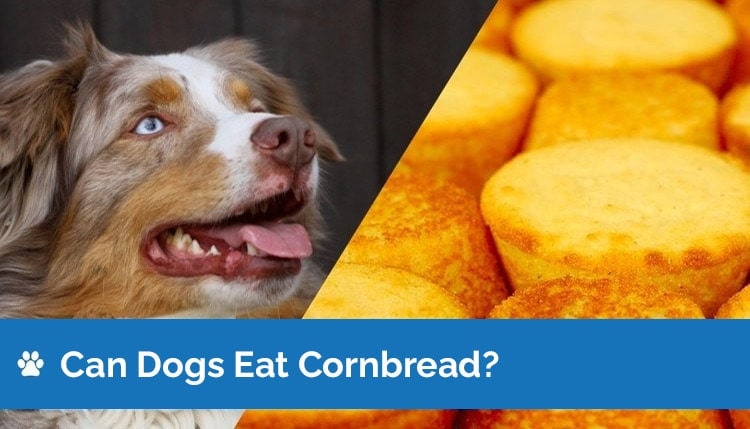Cornmeal is generally considered safe for dogs in small amounts and when cooked properly. It’s a common ingredient found in some dog food recipes and treats. Cornmeal can provide dogs with carbohydrates and some nutrients, such as fiber, protein, and essential minerals.
However, it’s important to note that corn is not easily digestible for all dogs, and some may have allergies or sensitivities to it. Additionally, excessive consumption of cornmeal or any high-carbohydrate food can lead to weight gain and other health issues.
If you’re considering including cornmeal in your dog’s diet, it’s advisable to consult your veterinarian to ensure that it aligns with your dog’s specific nutritional needs and any potential allergies. It’s also recommended to cook the cornmeal thoroughly to improve its digestibility and reduce the risk of gastrointestinal upset.
As with any new ingredient, moderation and careful observation of your dog’s reactions are key to determining whether cornmeal is a suitable addition to their diet.
Is It Ok for Dogs to Eat Cornbread?
There’s no one-size-fits-all answer to this question, as it depends on your dog’s individual dietary needs. However, in general, cornbread is safe for dogs to eat in moderation. Cornbread is a type of quick bread made with cornmeal, flour, eggs, milk, and sometimes sugar.
It’s a popular side dish in the Southern United States and can be served savory or sweet. While cornbread isn’t the most nutritious food for dogs, it won’t hurt them if they eat a small piece occasionally.
Just be sure to avoid feeding your dog moldy cornbread, as it could contain harmful toxins.
Is Corn Good for Dogs?
There are a lot of opinions out there about whether corn is good for dogs. Some people say that it’s an inexpensive filler ingredient that doesn’t provide much nutritional value, while others claim that it’s a healthy source of essential nutrients like fiber and vitamin C. So, what’s the truth?
Corn is a grain, and like all grains, it contains carbohydrates. Dogs need some carbohydrates in their diet for energy, but too many can lead to weight gain. Corn also has a relatively high sugar content, which can cause blood sugar spikes in some dogs.
For these reasons, corn is generally considered to be less nutritious than other types of dog food ingredients like meat or vegetables. That said, corn does have some redeeming qualities. It’s a good source of dietary fiber, which is important for gut health, and it also provides essential vitamins and minerals like vitamin C and magnesium.
So while corn may not be the best thing you could feed your dog, it’s not necessarily bad for them either. If you’re looking for a more nutrient-dense diet for your pup, there are plenty of other options out there.
Can Dogs Have Corn Flour?
Yes, dogs can have corn flour. This type of flour is made by grinding whole corn kernels into a fine powder. It’s a good source of carbohydrates and protein, and it can provide some essential vitamins and minerals.
However, corn flour is also high in fat and calories, so it’s important to feed it to your dog in moderation. When feeding your dog corn flour, be sure to start with a small amount to see how he reacts.
Some dogs may experience digestive upset after eating this type of flour, so it’s best to introduce it slowly into their diet.
Can Dogs Digest Corn Gluten Meal?
Yes, dogs can digest corn gluten meal. In fact, it is a common ingredient in many commercial dog foods. Corn gluten meal is a byproduct of the milling process and is composed of the protein portion of the kernel. It is high in fiber and low in fat, making it an ideal source of nutrition for dogs.

Credit: www.hepper.com
Can Dogs Eat Polenta?
Yes, dogs can eat polenta. This cornmeal dish is a good source of carbohydrates and protein for your pup. Just make sure to cook it without any added salt, fat, or spices.
You can either serve it as-is or mix it with some boiled chicken or beef for a complete meal.
Can Dogs Eat Oatmeal?
Yes, dogs can eat oatmeal! Oatmeal is a great source of fiber and protein, and it’s also a whole grain. Dogs who eat oatmeal may have better digestion and less diarrhea.
Just be sure to cook the oatmeal first, and don’t add any sugar or salt. You can also add some fruits or vegetables to the oatmeal for extra nutrition.
Can Dogs Have Cinnamon?
The answer is yes, but only in small amounts. Cinnamon is safe for dogs to eat in small quantities, but it’s important to make sure your dog doesn’t consume too much.
Too much cinnamon can cause gastrointestinal upset and potential liver damage in dogs. So if you’re going to give your furry friend a little taste of this spice, be sure to do so sparingly.
Conclusion
Cornmeal is a type of flour made from dried corn kernels that have been ground up. It’s commonly used in recipes for things like cornbread and fried foods. You might be wondering if it’s safe to share your cornmeal-based goodies with your furry friend.
The short answer is yes, dogs can eat cornmeal. While cornmeal is not toxic to dogs, it’s not necessarily the most nutritious food for them either.
If you do choose to feed your dog cornmeal, do so in moderation and make sure they are getting plenty of other nutrients in their diet as well.